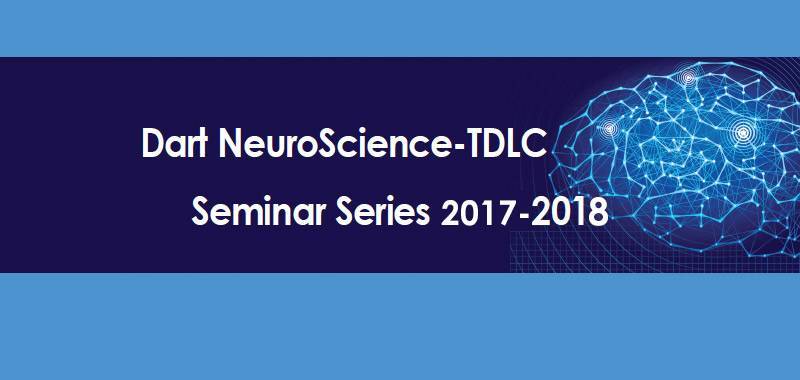Jan 10, 2018–Jan 10, 2018 from 4:00pm–5:00pm
Dr. Richard Granger from Dartmouth College

Dr. Richard Granger from Dartmouth College will be presenting on the "Principles of Brain Design." Abstract: Extant artificial neural networks (deep, recurrent, etc.) represent a surprisingly modest subset of brain-like algorithms, perhaps accounting for the current wide gap between the capabilities of even the most advanced artificial systems versus human capabilities in e.g., rapid learning from few instances, learning by being taught, attention, navigation, structure, temporal sequence, semantic language meaning ... i.e., in realms other than statistical “big data” analyses such as search-based games. Meanwhile, mammalian brain circuits convey a diverse yet biologically constrained array of candidate algorithms, comprising an “instruction set” that can be composed to underlie perceptual and cognitive computations. Theoretical analyses indicate the broad scope of these algorithms, and empirical testing has directly demonstrated their power against current approaches, in range of well-studied applications domains. Notably, some longstanding challenges may be explained by these circuit methods. Recent findings have shown that the deceptively simple question of “when do two things look alike” leads to new algorithms, outperforming widely-used systems that are dependent on human similarity evaluations, including, surprisingly, JPEG compression and Image Quality Analysis (Rodriguez & Granger 2017). Bio: Richard Granger is a Professor at Dartmouth College with positions in the Psychological and Brain Sciences Department, the Thayer School of Engineering, and the Cognitive Science Program; he also is the director of the Brain Engineering Laboratory (BrainEngineering.org). He received his Bachelor’s and Ph.D. from MIT and Yale. His research ranges from computation and robotics to basic neuroscience, and he is the author of more than 100 scientific papers and numerous patents. He is a consultant to, and on the boards of, a number of technology corporations and government research agencies, and he has been the principal architect of fielded computational systems for military, commercial, and medical applications, and co-inventor of FDA-approved devices and drugs in active clinical trials.
Date and Time
Jan 10, 2018–Jan 10, 2018
from 4:00pm–5:00pm
Location
Sanford Consortium, Duane J. Roth Auditorium - 2880 Torrey Pines Scenic Drive, La Jolla, CA 92037
Event Registration
Registration is not required for this event.
Event Fee
Seminar & light reception following the presentation are FREE
Contact
Keri O'Leary • kaoleary@ucsd.edu • 858-822-5805
Audience
Faculty, Staff, Students, The General Public
Event Host
Dart Neuroscience - TDLC